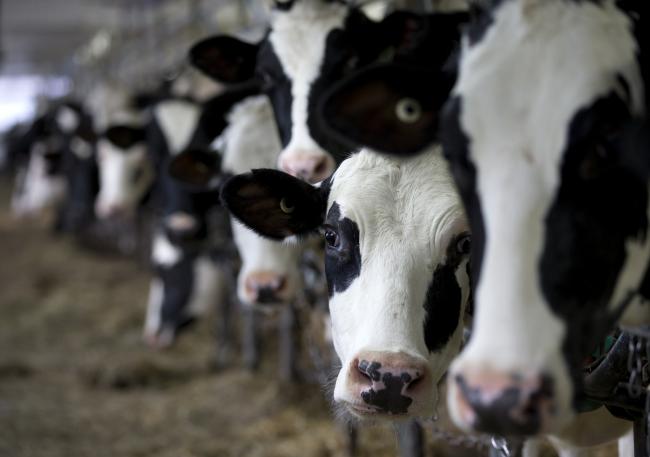(Bloomberg) -- Conaprole is betting against widespread global substitution of cow milk as the Uruguayan dairy cooperative opens a new $35 million plant to make premium products such as infant formula.
Changing consumer tastes in the U.S. and other developed countries where milk consumption has been falling for decades have spurred dairy companies such as Dean Foods Co. and New Zealand giant Fonterra Cooperative Group to invest in makers of plant-based yogurt or bio-engineered proteins.
“We aren’t focused on that sector because we aren’t at all convinced that is the right way to go,” Conaprole Chairman Alvaro Ambrois said in an interview at the company’s headquarters in Montevideo. “We are focused on the quality of our cow milk products.”
Ambrois pointed to how consumers once eschewed butter in favor of margarine only to return in recent years due to health concerns about vegetable oil spreads. While skeptical about dairy substitutes, he sees a market in lower-income countries for cheaper dairy products that incorporate vegetable oils.
Conaprole, Uruguay’s largest exporter and private-sector company with sales of $924 million in fiscal year 2018, depends on demand from foreign markets like Algeria, Brazil and Russia for about two-thirds of the more than 1.4 billion liters of milk it processes each year.
Ambrois is optimistic that China’s share of the cooperative’s exports will continue to rise this year and next after almost tripling to 6.4 percent in 2018. While rivals from New Zealand and Australia enjoy free-trade agreements with the Asian nation, Conaprole might be able to sell more into China in the event of consolidation among high-cost local producers, he said.
In Brazil, the company is seeing stronger consumer demand for many of its products in a sign that growth might be picking up, Ambrois said.
Not For Sale
While Uruguay is regarded as the least corrupt country in South America, businesses operating there face some of the highest energy costs in the Americas, a strong currency and militant trade unionism.
Years of low milk prices and costly labor disputes led some of the cooperative’s about 1,900 dairy farmers to float the idea of selling the 83-year-old company last year.
The board isn’t pursing a sale, said Ambrois, who forecast revenue growth similar to last year’s 7 percent amid a recovery in benchmark dairy prices.
